Crowd rallies at Colorado State Capitol in anticipation of a post-'Roe' future

DENVER — Nearly 100 people took to the steps of the Colorado State Capitol Tuesday afternoon to rally in support of safe, accessible and legal abortion.
The rally came after Politico published a draft opinion from the United States Supreme Court Monday night showing that a majority of justices, led by conservatives, planned to overturn Roe v. Wade, the landmark 1973 Supreme Court ruling that protected a person's right to receive an abortion.
Attendees held signs with messages like "abortion is a human right" and "we will not go backward."
"We've seen this time and time again, when Republicans and conservatives try to take away our rights," said Lauren Harrington, who was at the rally. "They predominantly take them away from poor people, people of color, queer people and people who are already being screwed over from the system that's oppressing them."
The draft opinion obtained by Politico would not make abortion illegal nationwide, but by overturning Roe it would permit states to dramatically restrict, or outright ban, access to abortions. This would not be the case in Colorado, where Democratic lawmakers recently passed a law codifying abortion access in the state. However, many of Colorado's neighboring states are poised to make abortion illegal if Roe is overturned, which seems likely given the court's conservative majority (Chief Justice John Roberts confirmed the authenticity of the draft, but noted that draft opinions could change before a final ruling).
According to an analysis by NPR, 18 states — including Arizona, Utah, Wyoming and Oklahoma — have “trigger laws” to ban abortion if Roe is overturned or "have pre-Roe abortion bans still on the books." Officials in Colorado expect an increase of people traveling from out of state to obtain an abortion if the procedure is outlawed. There has already been an increase in abortion appointments from out-of-state patients in Colorado since Texas passed strict abortion limitations last year. According to the Denver Gazette, Denver's Planned Parenthood clinic saw a 520% increase in patients from Texas between Sept. 1 and mid-October of last year.
In February, the Associated Press analyzed data showing abortion bans and restrictions disproportionately affect women of color.
[Related: Here's what could happen if Roe v. Wade is overturned]
The Supreme Court is set to make a ruling on Roe's future in June.
Faces of the Issue
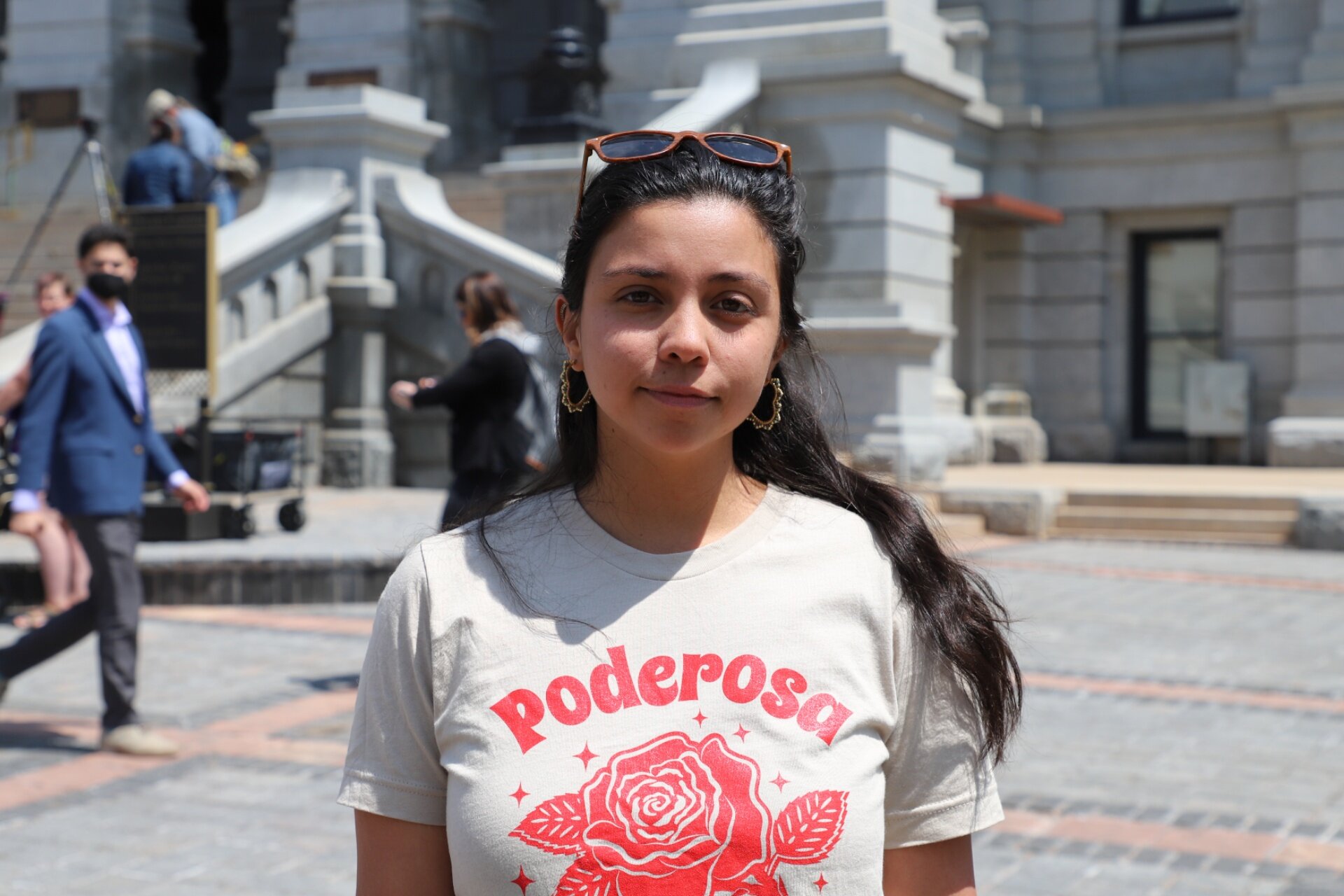
Isabel Cruz works with Colorado Doula Project, a volunteer collective that provides practical, logistical and financial support to people seeking reproductive health care in Colorado, particularly abortions.
"I came here today to be in community, in this unfortunately unsurprising but nonetheless devastating day, as we are on the precipice of particularly the most marginalized birthing people in our country losing access to abortion," Cruz said.
"The fact of the matter is that abortion funds and practical support organizations like ours have been anticipating this day for years and we also work with partners across the country who have been living in what we know the post-Roe world will look like," Cruz continued. "And so I'm out here today to be in community but also to really emphasize that abortion funds and practical support organizations are here doing the work. We are not going anywhere, and we need financial and other types of support in order to meet the increasing demand that we know is going to come for services in places like Colorado and across the country, because abortion is not going away."
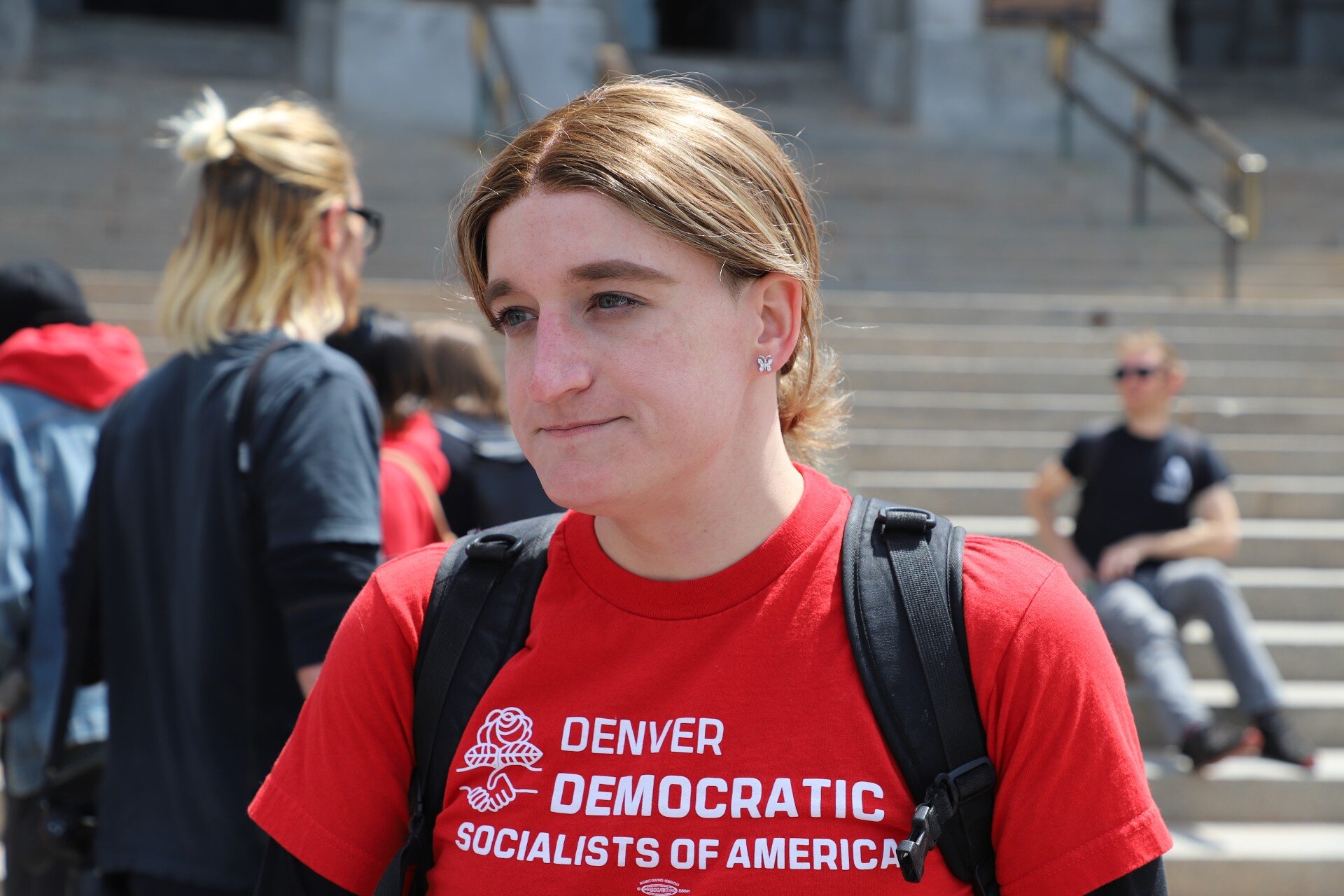
As the co-chair of the Denver chapter of the Democratic Socialists of America, Claire Sannier feels it is her duty to protect bodily autonomy and ensure that Colorado continues to be a safe haven for anyone needing an abortion.
“This has been our deepest fear as a community for the last four years, it's kind of a natural conclusion of the Trump presidency,” Sannier said. “It has been the GOP’s project for several decades, and it looks like it's finally coming to a horrible fruition.”
While Colorado Gov. Jared Polis recently signed a law codifying the access to abortion for anyone in the state, Sannier said she is fighting for the procedure to be more accessible to low-income individuals, as well as make sure that those in other states who may need abortion can come to Colorado to receive one.
“The most important thing is to make sure that people know that Colorado is a safe place to have an abortion, and that they know that the programs that we have to provide free, safe and legal abortions are well funded,” Sannier said.
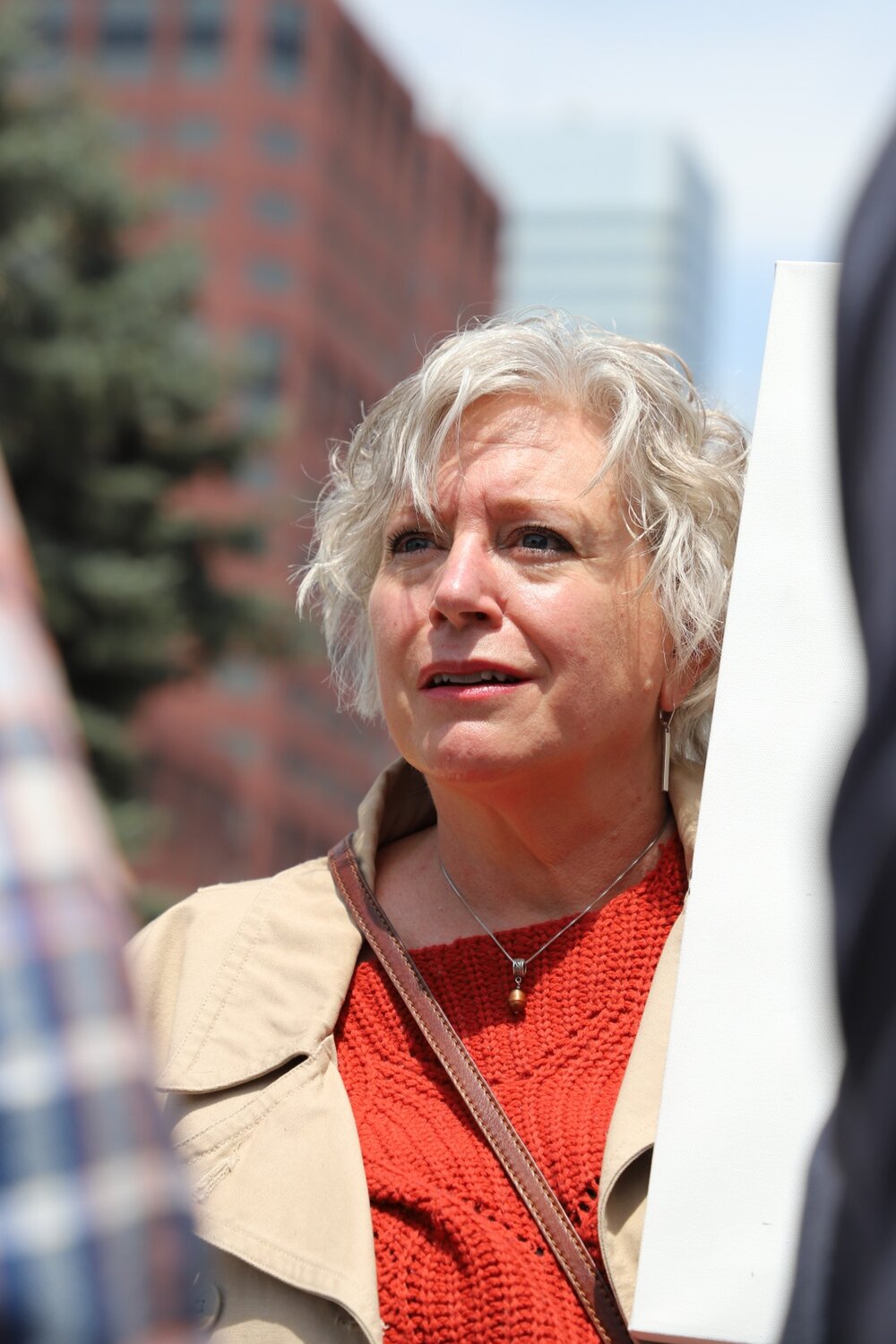
Marla Sullivan’s hands shook as she painted “Pro-Choice AF,” onto a piece of poster board Tuesday morning. She felt her whole body filling with rage when she heard the news, and as she made the trek from her home in Castle Rock to the rally in Denver, curse words and overwhelming anger flew out of her mouth.
Sullivan, who is 61 years old, lived her entire life knowing that if she ever needed an abortion, she had access to one, as those before her fought for the success of Roe. But at her age, Sullivan believes it’s her duty to fight for younger generations, as previous generations did for her.
“I’ve never had to fight for this, the women before me did, and now I have a daughter who’s almost 30 and I’m just terrified for her and for everyone,” Sullivan said in an interview with Rocky Mountain PBS at the Tuesday rally. “It's a healthcare issue, it's a human rights issue, it's everything, and it represents something horrible and terrifying that's happening right now in our country.”
Sullivan said many in her conservative city seem to either not care about the issue or be opponents of abortion, thougn she knows anyone who needs an abortion and has the money to get one will still be able to do so.
“It’s a matter of who has the money to support this,” Sullivan said. “I've been to this capitol so many times, I’ve lived here my whole life. This day is as important as any protest I've attended before.”
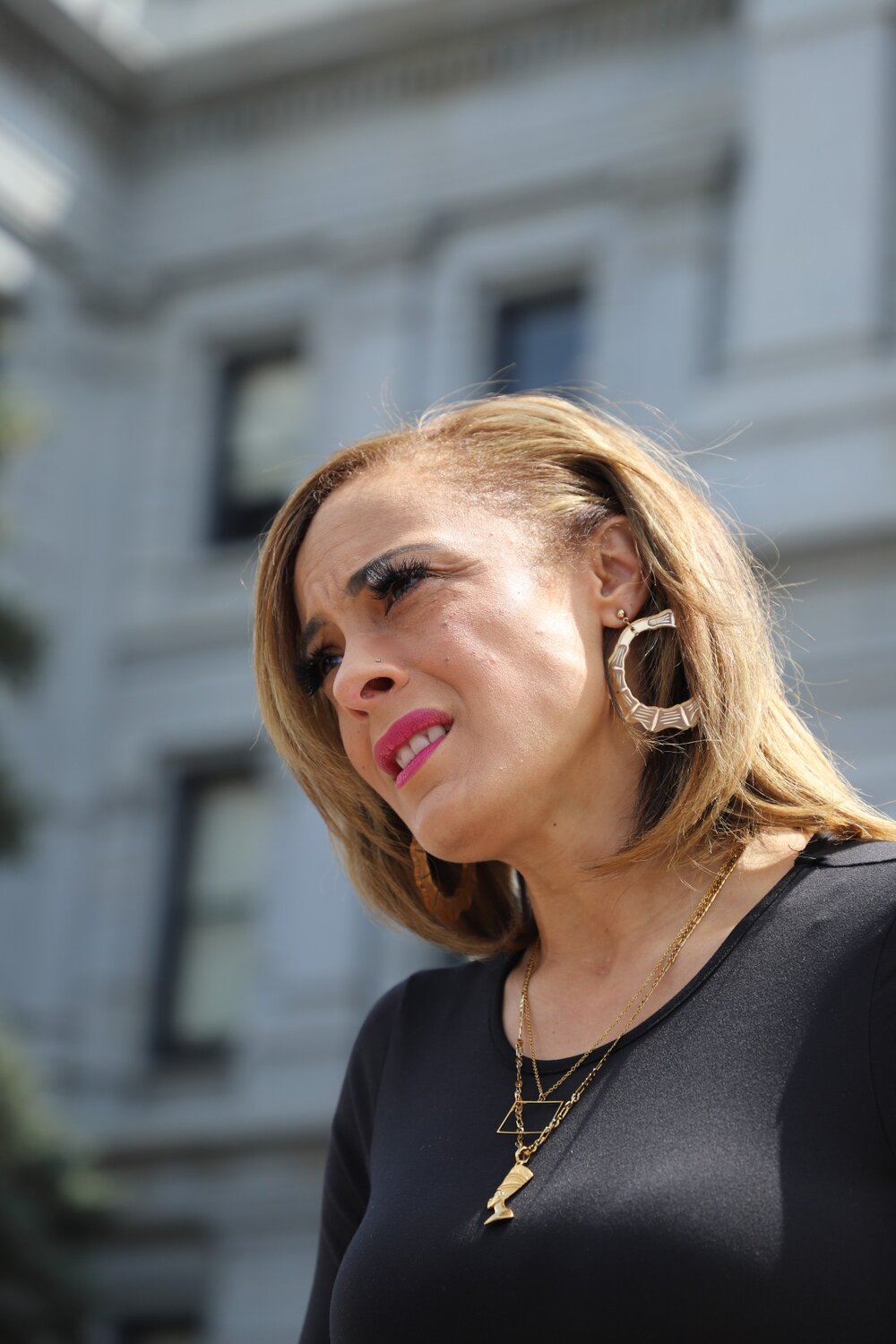
As a teenager, Elisabeth Epps needed an abortion and chose to have a child in the same year, and she’s fighting to ensure every American has the same choice.
“I was incredibly blessed to be in a place where I was able to make those decisions safely with support and medical care and medical access, and it's unconscionable to me that other pregnant folks are facing a world where they don't have the same choice,” said Epps, who is running for House District 6. “Today, the right that is most under attack is abortion access, reproductive rights, reproductive freedom and reproductive justice.”
While abortion will remain legal in Colorado despite how SCOTUS rules, Epps said she wants to get rid of any provisions forbidding state funds from being used toward the procedure and making it more accessible to low-income patients.
“It’s long overtime,” Epps said. “It’s long overdue that we do that.”
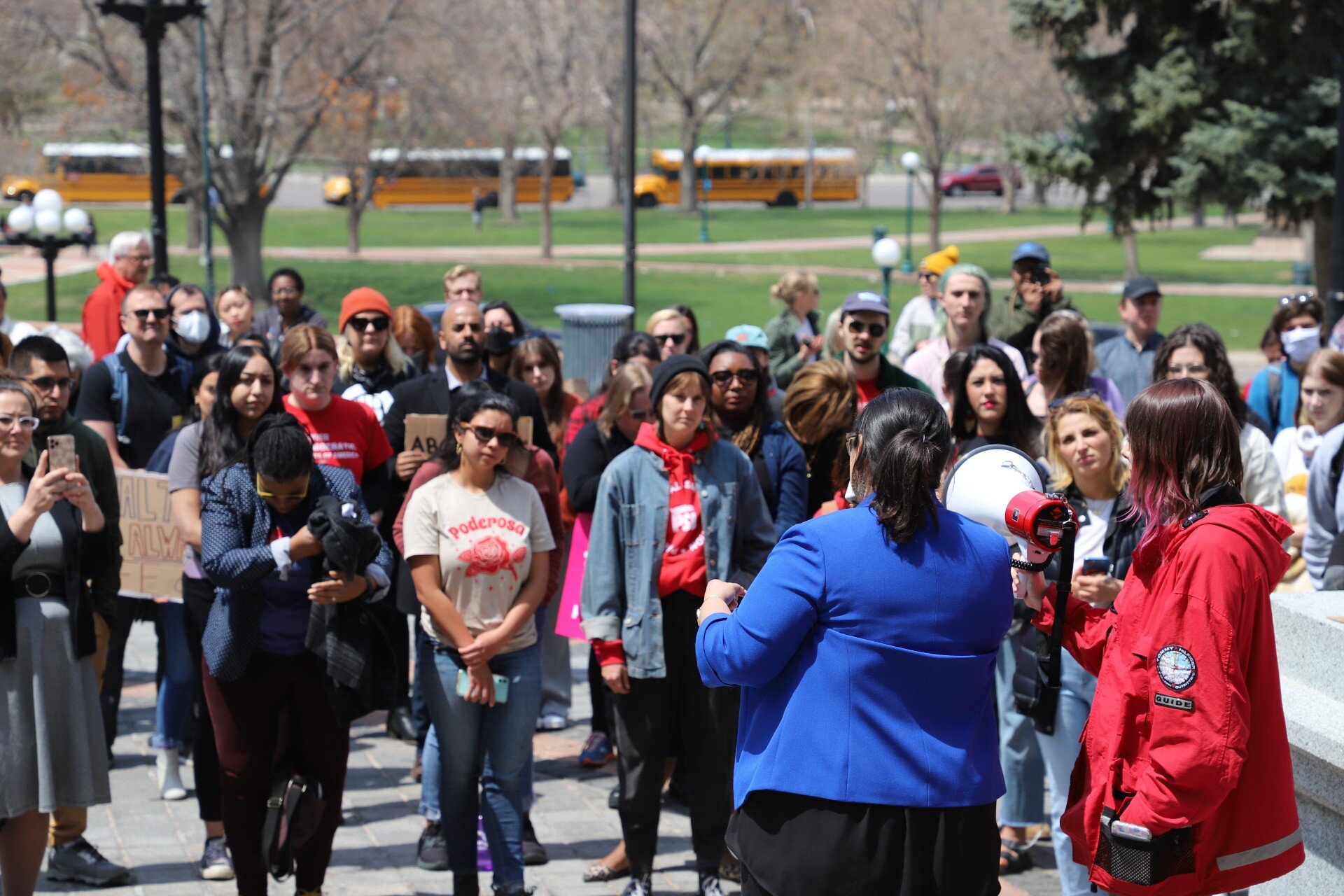
Asked why she spoke at and attended Tuesday's rally, State Senator Julie Gonzales (D-Denver) told Rocky Mountain PBS, "because I'm furious."
Gonzales, a main sponsor of Colorado's Reproductive Health Equity Act, said "I think all of us are stunned but not surprised about the fact that this decision is forthcoming."
"I think that we find ourselves in a moment where our ability to make decisions about our own bodies is at stake," Gonzales said.
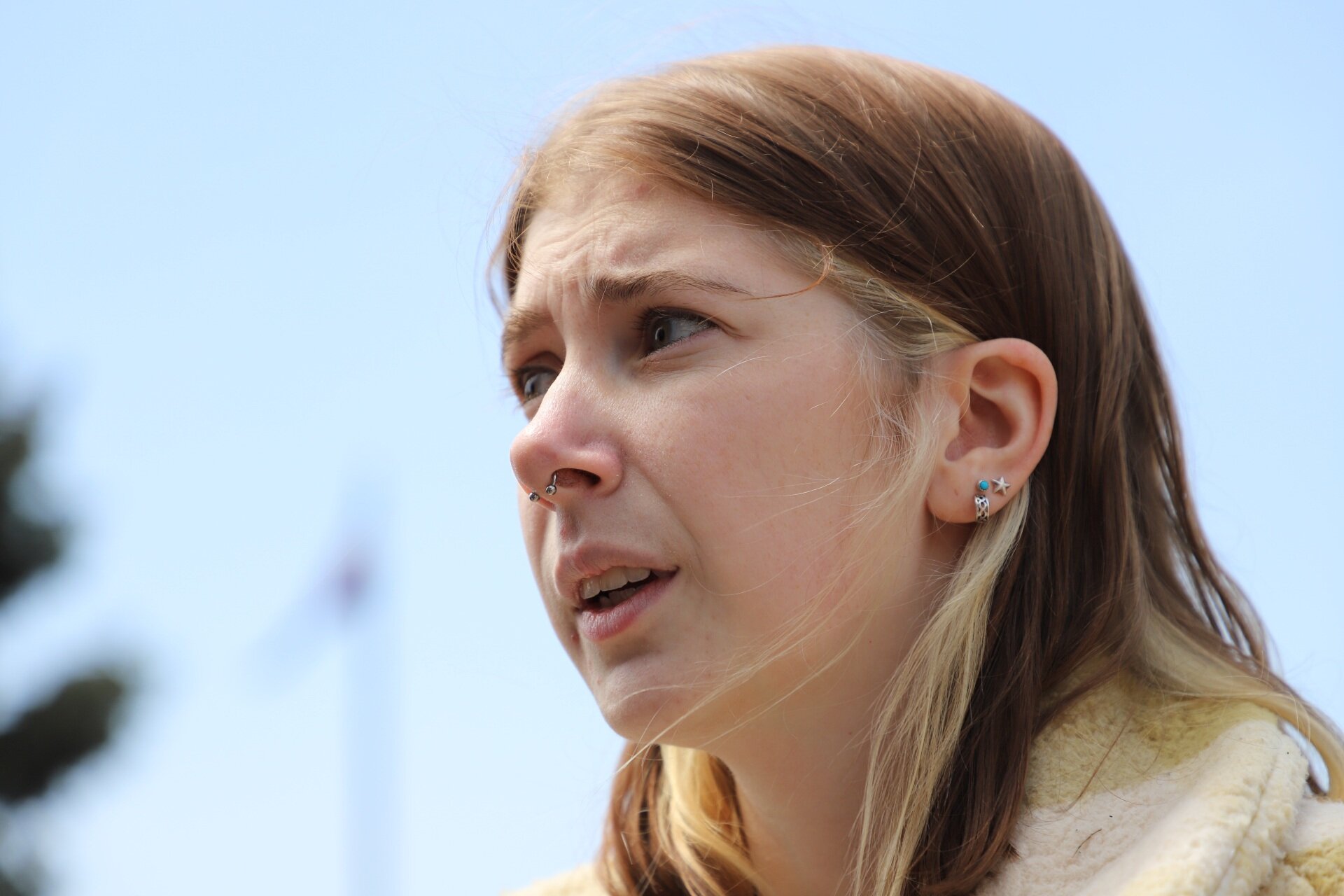
While Kate Kelly hopes that those who need an abortion can safely receive one in Colorado, she also hopes other states look to the Centennial State as an example of what she believes people want: legal and accessible abortions.
“We need our leaders to know that abortion access is something people want, it’s something they need, it’s a fundamental human right,” Kelly said. “I just hope it serves as an example and it paves the way for other states to follow.”
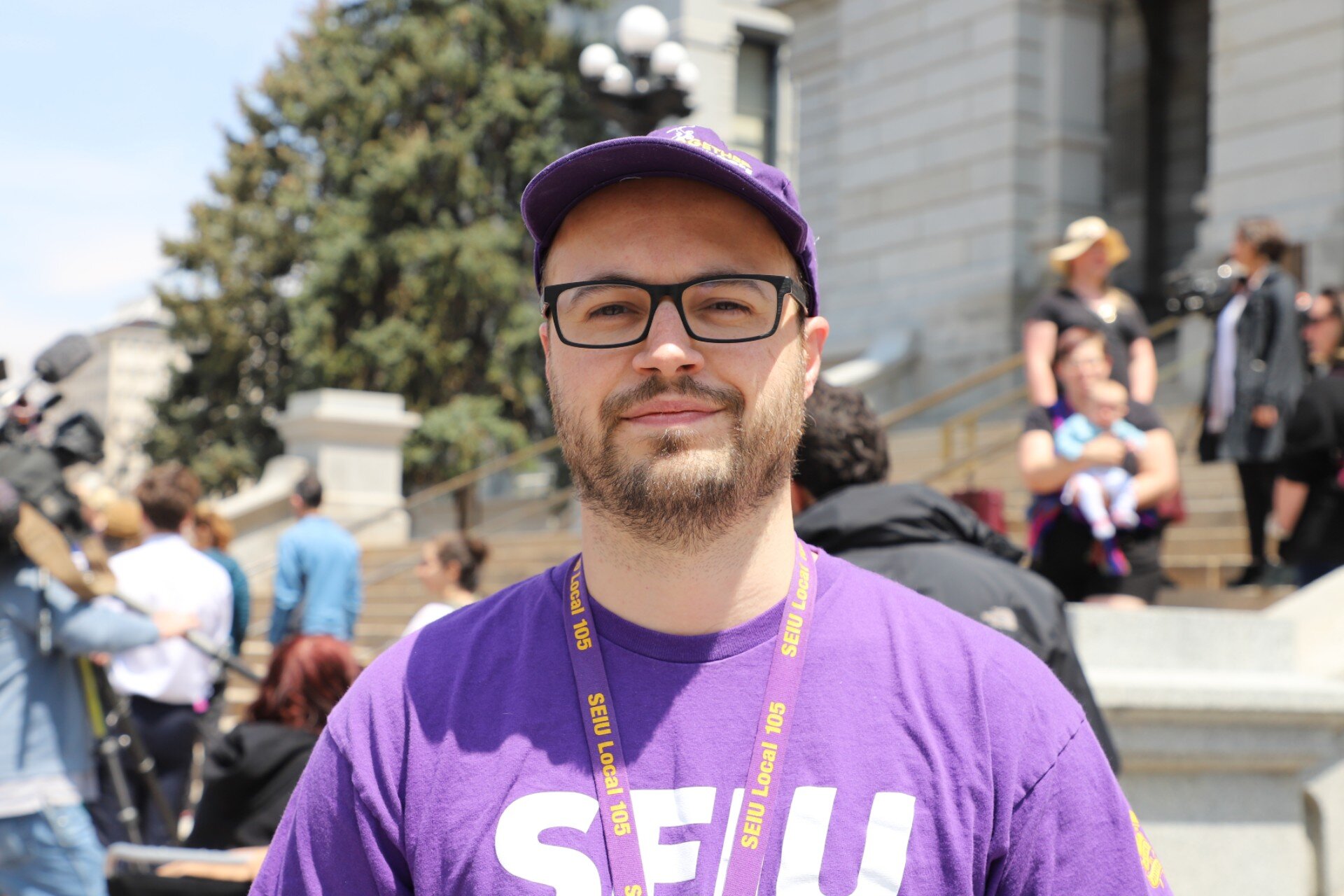
Keith Ohler is a staff member with SEIU Local 105, a union that represents more than 2,000 janitorial workers in Denver.
"We have workers who are members of our union from the planned parenthood of the Rocky mountains … and it's really short notice but workers wanted to have some representation today to say that, you know, abortion access in this state and the whole country is really crucial for everyone," Ohler said.
"Abortion access is a working class issue. Women who are able to access abortion care or reproductive care are able to support themselves and their families better, not to mention the workers who provide abortion and reproductive care … do their best to provide good, quality care for everybody. They do an amazing job, and we need to protect that as well."